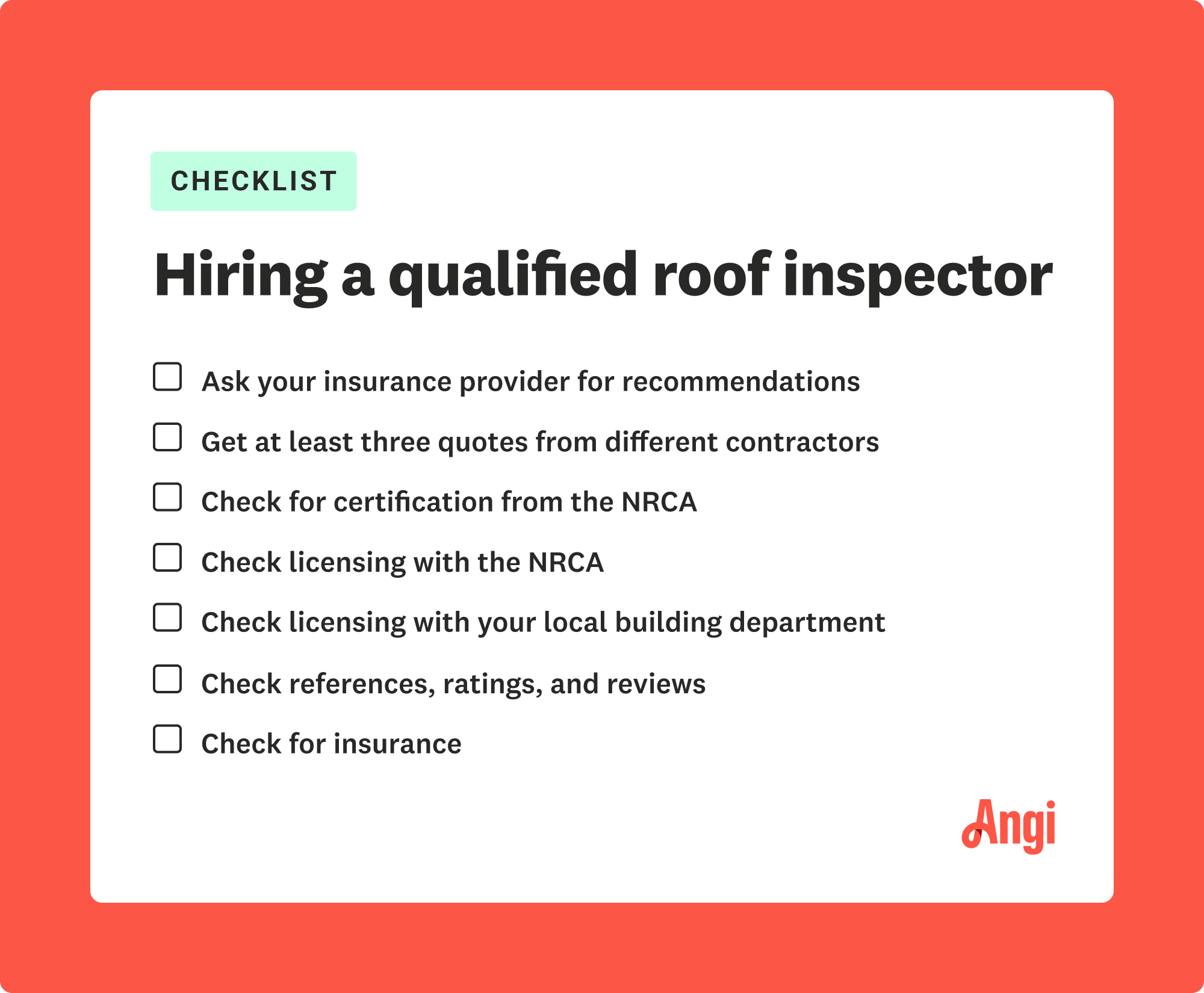Free Roof Inspection Scams: What to Look For and How to Avoid
Avoid getting caught in a free roof inspection scam with these tips


A free roof inspection can feel like an enticing offer to save some cash. While most contractors are honest hardworking people, unfortunately, some use this as an opportunity to scam consumers into unnecessary or overpriced repairs. Avoid falling victim to free roof inspection scams by staying informed on these tactics and arming yourself with the right questions to ask any potential roofing contractor.
Whether it's for repairs or inspections, getting on your roof is never a good idea. Working at dangerous heights carries the risk of falling and serious injury. A roofing pro will have the necessary skills and equipment to do the job safely.
How to Identify a Free Roof Inspection Scam
Free roof inspection scams typically begin with an unsolicited offer. Scammers will often show up at your door and offer to provide you with a roof inspection for free. They’ll usually explain that they were working on a neighbor's roof or just happened to be in the area and noticed your roof needed repairs. They often target people after a large storm or intense weather event that could cause damage.
If you agree to let them take a look at your roof, they may add additional damage that wasn’t there to begin with. They can tear off shingles or mimic wind damage, resulting in higher repair costs. Once they’re back on the ground, they may show you pictures of the damage they created or damage from a roof that is not yours.
Tips for Vetting Roof Inspectors

There are some ways to know you’re hiring a trustworthy roof inspector near you. The first line of defense to avoid getting scammed by a free roof inspection is to do your research. Look up potential roofing companies online and take a look at their reviews. Customers will post online about scams or dishonest contractors to help others avoid them. But here are some other tips to keep in mind.
Be Wary of Contractors Who Show Up Unannounced
If a contractor shows up at your door unannounced, it may be a red flag. Ask about the details of their business and location. Don’t be afraid to ask questions when discussing a roof repair with a contractor, and never feel pressured to agree to anything on the spot. If you find they’re hesitant or vague with their answers, pass on the inspection.
Know Your Roof
Prepare yourself with knowledge about your roof before hiring a contractor. Seek out the general age of your roof and its condition. Common signs that your roof needs repairs or replacement include old age, exterior damage, sagging spots, moss growth, and water damage.
Check for Certifications, Licenses, and References
You can also ask the contractor to show their credentials. A reputable roofing professional should be more than happy to provide you with their licensure and proof of insurance. If you’re feeling uneasy before agreeing to repairs, schedule a second inspection with a different contractor.
Roof Inspections vs. Estimates
Before you hire a contractor, determine if your home is in need of a roof inspection or roof estimate. While some use these terms interchangeably, roof inspections and roofing estimates are different services. Estimates are often free of charge and will provide you with a quoted cost to repair any damage you are already aware of. A roof inspection, however, is typically not free but will help you discover unknown issues.
If you have received a free inspection and are told repairs are needed, have your insurance company do their own inspection before you file a claim. Filing insurance claims can affect your future pricing and coverage, so you don’t want to get stuck with a claim that isn’t valid.
What to Look For in a Roof Inspection Contract

When hiring someone to do a roof inspection, there are key things to look for before signing a contract. Ask about their inspection methods—many companies use drones or infrared cameras to perform inspections. They can take photos, videos, and measurements without having anyone step foot on your roof. This is highly beneficial as it reduces the safety risk of roof inspections by preventing falls or the roof from collapsing under the inspector. It can also reduce the labor and equipment cost of the inspection as contractors require minimal supplies.
How Much Do Roof Inspections Cost?
If you agree to an inspection, note that roof inspection costs anywhere from $75 to $850. The average price is often around $220, so be wary of costs substantially higher or lower.
Once a contractor has completed an inspection, they should provide you with a full report and allow you time to make your own informed decision about any repairs they recommend. The report should include photos and descriptions of any damage. They should be able to determine if your roof needs a full replacement or just repairs and be happy to answer any questions you may have.
Don’t be fooled by a few bad apples—most roofing contractors are honest and ethical workers who are there to help. Knowing the red flags to look out for helps you stay on guard and protect yourself from potential free roof inspection scams.





- Roofers
- Metal Roofing
- Roof Repair
- Roof Inspection
- Vinyl Siding Repair Contractors
- Flat Roofing Companies
- Commercial Roofing
- Emergency Roofing Companies
- Leaky Roof Repair
- Metal Roof Repair
- Business Roof Repair
- Flat Roof Repair
- Tile Roof Repair
- Slate Roofers
- Rubber Roofers
- Roofing & Siding
- Metal Roof Installation
- Affordable Roofing
- Roof Sealing
- Attic Ventilation Contractors
- Roof Inspection Guide: Everything You Should Know
- What’s the Difference Between a Roofing Estimate and Inspection?
- Are Roof Inspections Really Worth It? Here’s What to Know
- What the Pros Look For: The Complete Roof Inspection Checklist
- 9 Warning Signs You Need a New Roof
- Should You Repair or Replace Your Roof?
- A Complete Guide to Dealing With Emergency Roof Repair
- 12 Most Common Roofing Scams and How to Avoid Them
- 15 Common Roof Issues You Shouldn’t Ignore and How They’re Fixed
- What to Do After Hail Damages Your Roof











